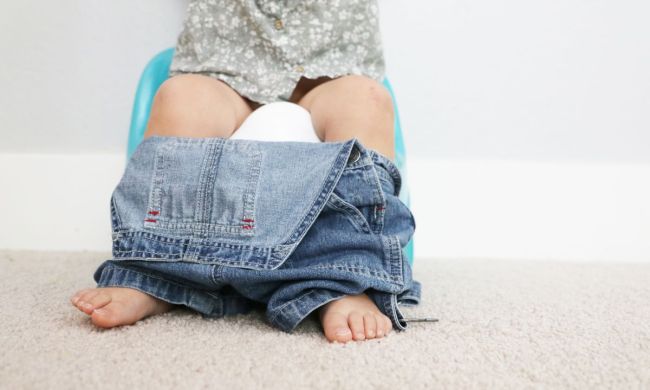Around a child’s first birthday, all the rules you knew about their food and drink start to change. Now, they need certain amounts of water and cow’s milk and no longer need breastmilk or formula, they need certain amounts of nutrients from solid foods, which is now their primary source of calories instead of bottles. It’s all a new balancing act of ounces and portions, so how much milk should a toddler drink and how much milk is too much?
The most important drink they have is water, but milk should be added to their daily diet as well. However, it should be a very particular amount because it is unhealthy to have too much just as it is unhealthy to have too little! Read on to learn exactly how much milk your toddler should be drinking each day.

How much milk should a toddler drink?
The American Academy of Pediatrics (AAP) recommends 2-3 cups of whole milk per day for one-year-olds and 2-2.5 cups of skim milk per day for those who are 2-5 years old. (Under 12 months, children should not be given cow’s milk.)
“Whole milk is recommended for kids 2 and under because of the calcium, fat, and protein found in it,” says Yaffi Lvova, RDN, a dietician with Baby Bloom Nutrition in Phoenix, Arizona. “The amounts recommended reflect calcium, fat, and protein needs during this time of rapid growth and development.”
These are the recommendations for dairy milk, but there are other milks you may be wondering about.
- If your child is still having breastmilk, that’s perfectly fine and cow milk isn’t needed in large amounts if they are having significant amounts of your milk. Introduce cow milk to replace breastmilk as you wean.
- If your child is sensitive to lactose or vegan, consult with your pediatrician about alternatives. The AAP does view soy milk as nutritionally equivalent to cow’s milk and an acceptable substitute but does not approve of other alternative “milks.” There are also low-lactose cow milks you can try. The important thing is whether there is protein, fat, calcium, and all of the vitamins and other nutrients present in cow’s milk, not whether or not it comes from an animal.
- Toddler formulas or “toddler milks” are not recommended or necessary.
- Only serve regular milk, not flavored milk like chocolate milk or strawberry milk. These milks with added sugars can make it difficult for toddlers to accept regular milk again because of the preference they can develop for flavored milk. The AAP does not recommend serving it before age two.
How much milk is too much?
If milk is so good for toddlers, is there such a thing as giving them too much? Actually, yes.
“Ingesting too much cow’s milk can lead to iron deficiency. In fact, drinking too much milk is the most common nutritional problem that I encounter in my clinic in toddlers between 12 months and three years of age. Children who drink more than 24 ounces [two cups] of milk per day often have a very limited intake of solid foods, which can lead to serious nutritional deficiencies,” says Dr. Michael Dickinson, head of pediatrics and chief of staff at the Miramichi Regional Hospital in New Brunswick, Canada.
Calcium and a milk protein called casein are what can lead to iron deficiency if there is too much of it in your toddler’s system. You do need to watch this issue with too much dairy in general (like yogurt and cheese), not just drinking glasses of milk. You can also add iron-rich foods like beans, spinach, and salmon into your toddler’s diet to make sure this issue isn’t playing out in their body.
The other issue besides iron deficiency is being too full on milk to eat other healthy foods with different nutrients. Don’t let them drink all day between meals so they don’t eat enough at mealtime. Dr. Dickinson says the leading cause of too much milk in the kids he sees is drinking it from a bottle, and he recommends serving milk in a cup instead of a bottle right from a child’s first birthday.
Final thoughts
If you’re ever wondering about your child’s appetite, you can always check their milk consumption first to see if that’s the problem. You can also check in with your pediatrician to test the iron in your toddler’s blood if you’re concerned on that front. It is a balancing act to get not too much and not too little, but try your best and don’t stress too much about measuring every ounce.




